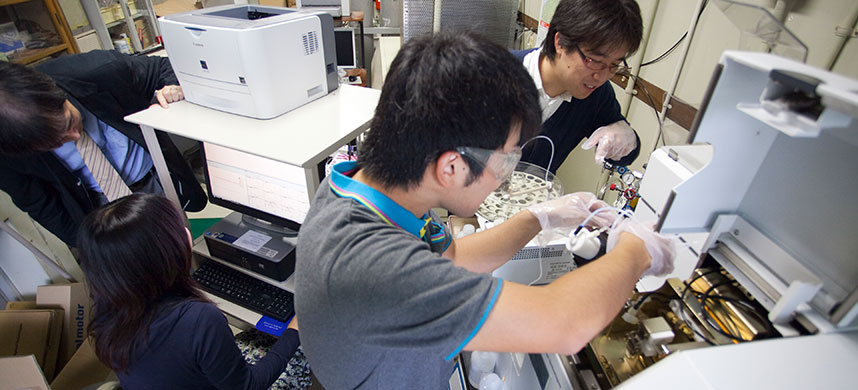
Upon entering graduate school, students must select one thesis supervisor from among the 22 full professors in the three departments or the 15 full professors in the two research institutes.
Students work primarily under the guidance of their major advisor, but they also must take a certain number of classes from among the following subjects: process engineering for functional devices, process engineering of functional materials, applied physical chemistry of materials, applied physical chemistry of high temperature melts, physics of electrons in solids, theory of phase transformations, theory of crystal dislocations, quantum electronics, science of material systems, numerical analyses of materials processing, applied elasticity and plasticity, functional material systems, functional chemical devices, ferrous process metallurgy, materials process engineering for environment consciousness, biomaterial science and engineering, analytical science, melt-phase processing, gas phase processing, physical refining, photo-induced refining, system engineering, atomistic solids science, atomistic materials designing, fundamentals of interfacial control, electronic devices and materials, magnetic device materials, special functional materials, structural materials, quantum statistical thermodynamics, microscopic and mesoscopic structures and properties of materials, magnetism and magnetic materials, high-temperature materials science, materials science of functional surfaces, nonequilibrium materials, science of structure-controlled materials, engineering materials design by simulation, solid-phase control material processing, processing of material systems, design of composite materials, materials evaluation, joining design, liquid state processing, forming process of solid materials, powder process technology, solidification control and processes, materials engineering in processing, advanced method for nanostructure and composition analysis, and advanced method for nanostructure and morphology analysis.
Students also participate in seminars and advanced lectures. A typical student spends the first year completing most of the required class work. The second year is reserved almost exclusively for conducting research and completing the thesis.